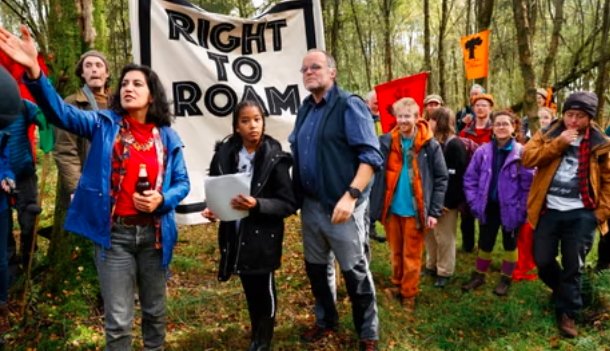New research uncovers £3.2 billion in Scottish property tucked away in secret offshore trusts, sparking fears that hidden owners could dodge new land reforms. As Scottish lawmakers push the Land Reform Bill into its final debate stage this October 2025, experts warn these shadowy setups might let corruption slip through the cracks and weaken efforts to make land ownership fairer for communities.
The Scale of Hidden Scottish Land Assets
Transparency groups have dug deep into public records and found a big chunk of Scotland’s property market stays out of sight. Out of £9.1 billion in properties linked to offshore spots, one fifth worth £3.2 billion hides behind structures that block views of the real owners. This includes places like Jersey, Guernsey, and the British Virgin Islands, known for keeping secrets tight.
These setups often involve complex trusts that shield identities, with £1.2 billion tied up in such webs. Experts point out that land like this can draw dirty money from abroad, turning Scotland into a quiet spot for illicit gains. The findings come at a bad time, right as the government tries to shake up how big chunks of land get bought and sold.
Communities across rural areas feel the pinch most. Without knowing who pulls the strings, locals struggle to push for changes that could bring jobs or green projects to their doorsteps. This lack of clarity has built up over years, fueled by old laws that let wealth flow in without questions.

Land Reform Bill Faces Transparency Hurdles
The Land Reform Bill sits at Stage 3 in the Scottish Parliament, aiming to fix issues around large landholdings and leases. Lawmakers want to boost community voices and spread ownership more evenly, but hidden offshore ties could make those goals hard to hit. If true owners stay nameless, rules on sales or management might just skim the surface.
Recent talks in Parliament highlight how these loopholes could let powerful players sidestep reforms. For instance, big estates sold off quietly might skip community buyout chances, leaving locals out in the cold. The bill pushes for better engagement between owners and people nearby, but without full owner details, trust breaks down fast.
One key worry links to how land gets used for good or ill. Diverse ownership could spark more sustainable farming or housing, yet secret trusts keep that potential locked away. As debates heat up this week, MSPs must weigh if current plans go far enough to crack open these barriers.
| Offshore Haven | Estimated Property Value in Scotland (£ billion) | Opacity Level |
|---|---|---|
| Jersey | 1.5 | High |
| Guernsey | 0.8 | High |
| British Virgin Islands | 0.9 | Very High |
| Total Opaque | 3.2 | – |
This table shows the main spots where hidden properties cluster, based on recent data digs.
New Trust Laws Add Fresh Risks
Scotland’s Trusts and Succession Act from 2024 has parts still waiting to kick in, but they could create homegrown versions of offshore secrecy. These rules might let trusts buy land without naming who benefits, mirroring the problems abroad. If that happens, even UK based setups could hide owners of vast Scottish acres.
Groups fighting corruption flag this as a red alert. They say it risks turning local laws into tools for evading taxes or laundering funds, much like what happens overseas. The Act aimed to modernize inheritance and estate planning, yet without tight checks, it opens doors to abuse.
Linking this to land reform, experts argue for quick fixes to stop these trusts from buying up properties unchecked. Without action, Scotland might see more money from shady sources pour in, hurting fair play in the property game.
Push for Amendments and Stronger Safeguards
Lawmakers like Rhoda Grant have stepped up with ideas to plug these gaps. Her Amendment 208 targets the 2024 Act’s weak spots, pushing for rules that force disclosure in land deals. This could shine light on trusts buying Scottish assets, making sure reforms stick.
Calls grow louder for an anti corruption plan tied to open government goals. Such a strategy would scan policies for weak points, ensuring land laws stay tough on hidden wealth. Officials urge MSPs to back these changes, seeing them as key to blocking oligarchs or kleptocrats from Scottish soil.
Broader trends show why this matters now. Recent sales of big estates have stirred debates on community rights, with some areas winning buyouts after years of fights. Tying in transparency could speed those wins and build trust in the system.
- Key benefits of full land ownership disclosure:
- Helps communities spot chances for local projects like affordable homes or parks.
- Cuts risks of money laundering by exposing true financial flows.
- Boosts fairer taxes on land, easing burdens on everyday Scots.
- Supports green goals by tracking how land aids climate efforts.
What This Means for Scotland’s Future
These revelations hit hard in a nation where land shapes lives from farms to cities. Hidden ownership not only blocks reforms but also fuels inequality, as a few unseen hands control resources many need. Yet, with the bill’s final push, there’s hope for real change that puts people first.
Tackling this head on could set Scotland as a leader in clean land dealings, drawing ethical investors while chasing out the bad. It ties into wider UK efforts against dirty money, showing how local laws link to global fights. As talks wrap up, the stakes feel higher than ever for a fairer share of the ground underfoot.
Readers, what do you think about these hidden land deals? Share your views in the comments below and spread the word on social media to keep the pressure on for transparent reforms.


















